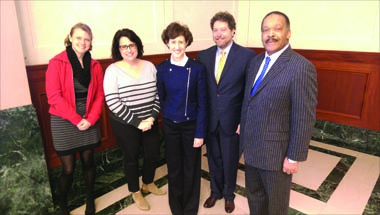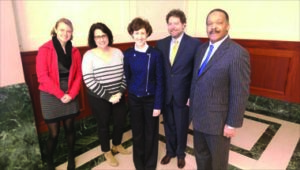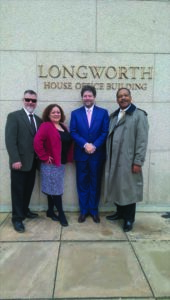Twenty years after founding the arts orPganization Silkroad, Yo-Yo Ma of Local 802 (New York City) is passing the baton to three of his collaborators. “I am thrilled to hand over artistic direction of Silkroad to Jeffrey Beecher [of Local 149 (Toronto, ON)], Nicholas Cords [of Local 802], and Shane Shanahan [of Local 802], three extraordinary colleagues who have taught me so much about collaboration, music, and friendship,” Ma says in a written statement.
“Together with Executive Director Eduardo A. Braniff, these inaugural co-artistic directors will shape the next chapter of Silkroad, bringing the passion and curiosity that we have developed to new communities and inspiring radical cultural collaboration that is essential to creating a better world.”
The new directors have pledged a commitment to diversity and inclusion across their board, staff, and ensemble, as well as among collaborators and in its audiences. “It is a commitment rooted in the belief that to ensure Silkroad’s continued impact on the world’s stages, in classrooms, and in our communities, we must engage an ever-broader coalition of voices, one that represents the many perspectives that shape our world,” the directors said in a statement.
They announced a series of US-based residencies for the next year and promised to unveil an “ambitious array” of new commissions “that frame a wide range of traditions, human experiences, and social issues.”





